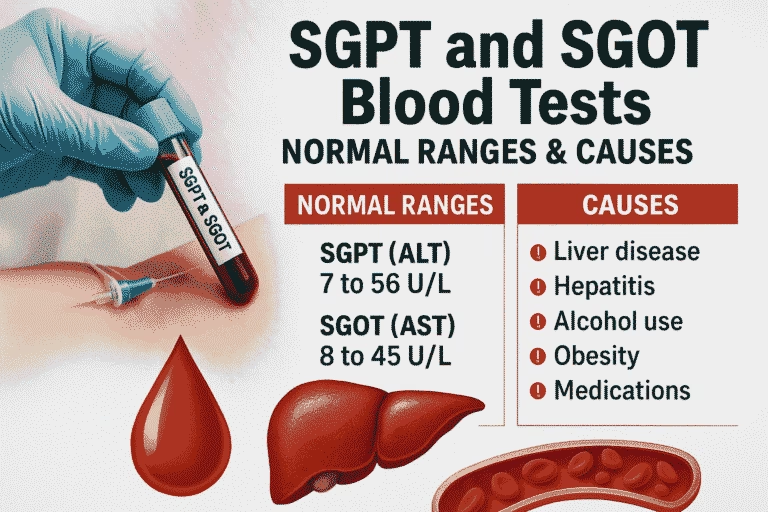
Does every meal bring with it uncertainty about your digestion? For the majority of the urban population today, the daily reality of eating involves tolerating bloating, gas, indigestion, and constipation. Modern medicine concentrates its efforts on treating the symptoms while ignoring that “All disease begins in the gut.” Ayurveda is a holistic solution that asserts this principle, complementing modern science’s focus on the gut-brain axis and the microbiome. Ayurveda states that our mind and body function in terms of three main doshas—Vata, responsible for all physiological movements and cognition, Pitta for digestion, metabolism, and homeostasis, and Kapha for growth and regulation. The integrity of your digestion is further linked to Agni—your digestive fire—whose strength is directly dictated by the balance of these three doshas. When Agni is compromised, it leads to the accumulation of Ama (undigested toxins), which is considered the root cause of all digestive imbalances and disease.
Understanding the Ayurvedic Perspective on Gut Health
Agni is governed by the 3 doshas, leading to 4 distinct states of digestion. A robust Agni is essential for nutrient absorption, immune function, and mental clarity.
Ama literally translates to ‘unripe’ or ‘uncooked’, representing the toxic residue that forms in the digestive tract due to compromised Agni by poor eating habits or stress. Weak Agni indicates partially digested food remains within us. The unprocessed food ferments and putrefies, turning into Ama. Ama impairs local digestive function, causing a coated tongue, gas, bloating, and a heavy feeling. More dangerously, Ama is absorbed and circulated throughout the body, where it clogs the srotas (micro-channels) that transport nutrients and waste. This systemic obstruction leads to tissue disruption and chronic, low-grade inflammation, manifesting as systemic issues like fatigue, low immunity, joint stiffness, and skin problems, making the elimination of Ama central to all Ayurvedic health protocols
| Dosha | Primary Elements | Manifestation in Digestion | Governing Agni |
| Vata | Air, Ether | Irregularity, Dryness: Characterized by erratic digestion, severe bloating, excessive gas, gurgling, and constipation or hard stools. The gut moves too quickly or too slowly. | Vishama
(irregular) |
| Pitta | Fire, Water | Heat, Inflammation: Leads to excessive Agni (Tikshna), causing hyperacidity, heartburn, stomach ulcers, loose or inflammatory stools, and irritation of the gut lining | Tiskhna
(Sharp/Intense) |
| Kapha | Earth, Water | Heaviness and sluggishness cause Manda Agni (dull fire), which results in a slow metabolism, a feeling of heaviness after meals, excessive mucus production, and a sense of sluggishness or dullness. | Manda
(Sluggish/Dull) |
Ayurvedic Diet Principles for a Healthy Gut
let’s explore the what, when, and how. Ayurveda asserts that a truly balanced meal must incorporate all six tastes: sweet, sour, salty, pungent, bitter, and astringent. Consuming all six in moderation at every meal ensures holistic satisfaction, regulates appetite, and signals the brain to release the full spectrum of digestive enzymes, supporting complete digestion and preventing Ama formation.
Key practices one must follow may seem boring or obvious, but they are often overlooked in favour of the search for quick-fix supplements and complicated diet trends. These key practices include:
- Eat only when genuinely hungry and after the previous meal has fully digested.
- Chew thoroughly (aim for 30 times per mouthful) to predigest food and signal enzyme production.
- Eat in a calm environment without distractions.
- Have your largest meal at midday (Pitta time, 10 am–2 pm) when Agni is naturally strongest.
- Avoid cold or iced drinks with meals, as these immediately extinguish Agni, promoting Ama formation.
Eating for your Dosha, means to return your Agni to its balanced Sama state, tailoring your diet to pacify your dominant or imbalanced dosha.
| Dosha in Imbalance | To Heal | Foods to Favour | Foods to Avoid |
|---|---|---|---|
| Vata | Cold, Dryness | Warm, Moist, Oily, Grounding (Cooked grains, soups, stews, ghee, root vegetables, ripe sweet fruits). | Cold, Dry, Raw (Salads, crackers, frozen desserts, carbonated drinks, dried fruit). |
| Pitta | Heat, Sharpness | Cooling, Sweet, Mildly Bitter (Coconut, cucumbers, melon, unspiced grains, leafy greens, most cooling herbs). | Excessively Hot, Spicy, Acidic (Chilies, alcohol, vinegar, coffee, aged cheese, red meat, sour fruits). |
| Kapha | Heaviness, Cold | Light, Warm, Dry, Pungent (Beans, raw honey, spices like ginger and cayenne, cooked greens, light grains like millet). | Heavy, Dense, Oily, Sweet (Most dairy, cold drinks, fried items, rich desserts, nuts in excess). |
Key Ayurvedic Foods, Herbs, and Spices for Gut Health
| Ayurvedic Ingredient | Core Action for Digestion | Key Gut Health Benefits |
| Ginger | Ignites Agni | Sparks digestive fire, reduces gas & bloating, warms the digestive tract. |
| Cumin, Coriander,
Fennel (CCF) |
Digestive Harmonizers | Neutralizes gas, reduces discomfort, and gently supports overall digestive function. |
| Tumeric | Gut Anti-Inflammatory | Powerful anti-inflammatory for the gut lining, supports healing, and reduces irritation. |
| Triphala | Gentle Colon Cleanser and Rejuvinator | Aids regular elimination, detoxifies the colon, and helps balance gut flora. |
| Ghee (Clarified Butter) | Gut Lubricant and Healer | Soothes and lubricates the gut wall, supports healthy intestinal lining, aids elimination. |
| Amla (Indian Gooseberry) | Antioxidant Digestive Support | Rich in Vitamin C, cooling properties, potent antioxidant, supports healthy elimination. |
| Freshly Cooked Foods | Agni-Friendly and Nutritious | Most easily digestible, minimizes Ama formation, maximizes nutrient absorption. |
| Fermented Foods | Personalized Approach | Can be heating and heavy, potentially increasing Ama if not suited to the dosha. |
Beyond Diet: Ayurvedic Lifestyle Tips for Digestion
True gut health extends beyond what you eat to encompass your daily rhythms and habits. Incorporating these simple Ayurvedic lifestyle practices can profoundly support your digestion and overall well-being.
Dinacharya (Daily Routine)
Aligning with nature’s rhythms is paramount. Waking up early (before 6 AM) harmonizes your body’s natural elimination cycles, supporting a clean start. Crucially, practice tongue scraping (Jihwa Prakshalana) every morning. This simple act removes overnight Ama (toxic coating) from the tongue, stimulating digestive organs and enhancing your sense of taste.
Hydration
How you drink is as important as what you drink. Sip warm or hot water throughout the day, especially between meals. Cold water dampens Agni, while warm water helps gently cleanse the digestive tract, encouraging proper elimination and preventing Ama accumulation. Avoid chugging large amounts; instead, sip slowly to support optimal hydration and digestion.
Movement
Gentle movement invigorates Agni. Incorporate light yoga asanas that promote digestion. Vajrasana (Thunderbolt Pose), for instance, can be practiced for 5-10 minutes after meals to stimulate blood flow to the stomach and intestines, aiding digestion.
Conclusion
The centuries of wisdom from Ayurveda are powerfully validated in the understanding of contemporary science. The ancient emphasis on Agni as the “digestive fire” and the negative effects of Ama (undigested toxins) strongly correlate with present-day research about the gut-brain axis and the microbiome. A balanced microbiome directly impacts mood, immunity, and overall health, just as Ayurveda teaches about gut health as the root of well-being. Ultimately, healing your gut with Ayurveda is about self-study, not and quick fix. By harnessing the strength of your Agni, observing your own Ama process, and working with your own developing Dosha, you can create a balanced state of digestion.
FAQs
What are the best Ayurvedic spices for gut health?
The top Ayurvedic spices for gut health include Ginger (universal digestive stimulant), the CCF trio (Cumin, Coriander, Fennel) for gas and discomfort, and Turmeric for its powerful anti-inflammatory properties that heal the gut lining. Black pepper, cardamom, and asafoetida (hing) also support Agni and reduce gas.
Can Ayurveda cure IBS?
Ayurveda focuses on managing and significantly alleviating IBS symptoms by addressing the root cause, such as imbalanced Agni or Ama, specific to your dosha. It restores digestive balance, calms the nervous system, and reduces inflammation, leading to long-term relief and improved gut function. This personalised approach often brings substantial and lasting improvements.
What is AMA, and how do I know if I have it?
Ama is the sticky, toxic residue of undigested food that accumulates when your Agni (digestive fire) is weak. You might have Ama if you experience a thick tongue coating, persistent bloating/gas, or a general feeling of heaviness and sluggishness. Other signs include brain fog, fatigue, or frequent congestion.
Is an Ayurvedic diet strictly vegetarian?
Traditionally, Ayurvedic diets are predominantly vegetarian, favoring fresh, plant-based foods for optimal digestion and purity. However, strict vegetarianism is not universally mandatory in all traditions. Lean meats or bone broths may be included for certain body types (e.g., Vata) or health conditions, always with careful preparation.
Can I combine Ayurvedic principles with my existing dietary restrictions (e.g., gluten-free, dairy-free)?
Absolutely. Ayurvedic principles are highly adaptable, focusing on how food affects your unique dosha and Agni, not rigid food lists. You can easily select gluten-free or dairy-free alternatives that align with your specific dosha recommendations. The key is preparing them in an Agni-friendly way.
Discover more from The Vigyan Chronicles
Subscribe to get the latest posts sent to your email.



